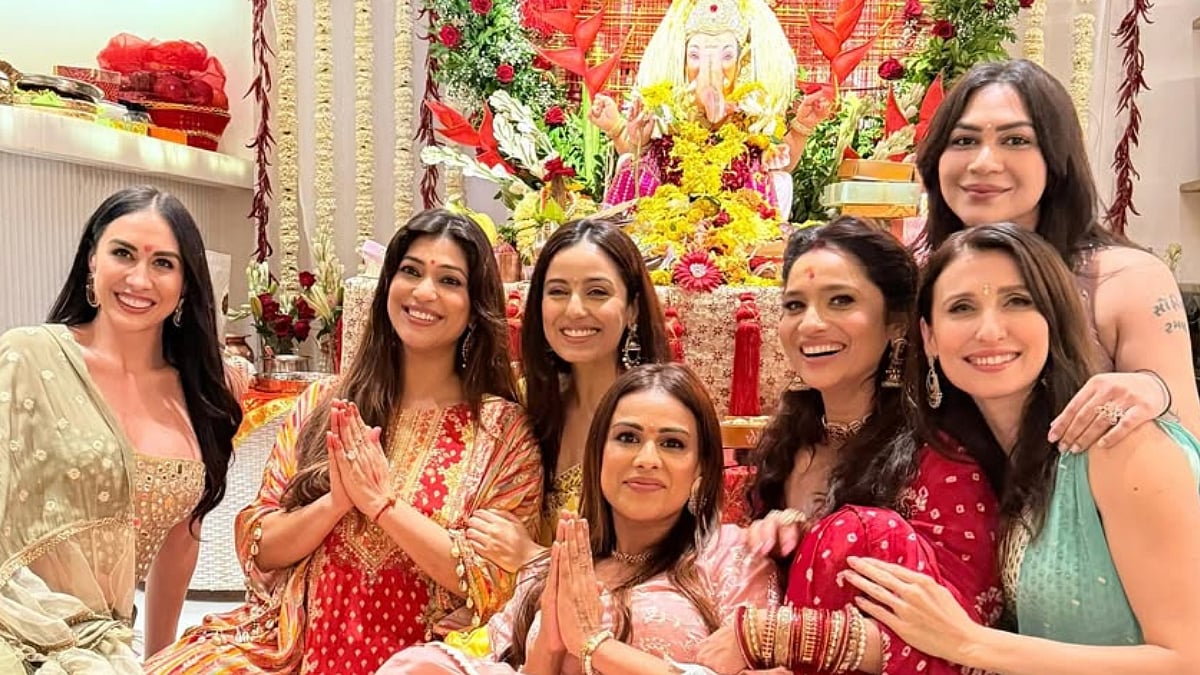Title: Amar Prem Ki Prem Kahani
Director: Hardik Gajjar
Cast: Sunny Singh, Aditya Seal, Pranutan Bahl
Where: Steaming on Jio Cinema
Rating: 3.5 Stars
This film brings a refreshing twist to the classic romance-comedy formula by focusing on a same-sex love story. Set against the contrasting backdrops of Ludhiana’s bustling streets and London’s cosmopolitan charm, the film follows Amar Minhas, a young man yearning to escape the confines of his protective family. On his journey to freedom, he crosses paths with Prem Chatterjee, and sparks fly—but not quite as brightly as one might hope. At the same time, the film aims to break new ground with its queer representation, the romance at its core struggles to ignite the emotional intensity needed for a truly memorable love story.
Sunny Singh plays Amar Minhas, a young man trapped in the cocoon of familial expectations and sibling overprotection in Ludhiana. He craves freedom and a romantic escape—though his dreams involve another man, not the typical bride his family envisions. His ticket out? A visit to his uncle in London. However, fate has other plans when he meets Prem Chatterjee at the airport, sparking a whirlwind of romance that feels underexploited.
While Singh and Aditya Seal (Prem) are individually appealing, their on-screen connection feels tepid. The tension and emotional stakes that should anchor the romance never truly surface, and the only glimmer of spark arrives when Prem throws out a desperate plea for Amar to stay with him in London.
That said, the performances are not without merit. Sunny and Aditya bring charm and sincerity to their roles, eventually winning you over—if not as a couple, at least as endearing individuals. The real scene-stealer, however, is Amar’s grandmother, who delivers with wit, warmth, and a strong dose of desi sass. It’s a delightful surprise when she picks up the iconic line from Dilwale Dulhania Le Jayenge, twisting them to suit the narrative’s queer focus while also nudging at the comfort of Bollywood’s more traditional romantic tropes.
On the technical side, the direction is competent, though uneven. The film falls prey to several clichés, particularly in the banter and teasing among the family members, often reminiscent of other rom-coms featuring interstate marriages. The writing, at times, feels amateurish, relying too much on worn-out lines and jokes like, “What happens in a strip club, stays in the strip club,” which come across as more cheesy than cheeky.

Visually, the film has its fair share of rom-com staples—complete with swans on a stream and soft-focus moments that scream “cute,” even when the narrative doesn’t entirely back it up. The attempt to insert these tropes into a queer love story is admirable but feels forced rather than fluid. It’s as if the film is torn between breaking new ground and staying comfortably within the established rom-com formula.
At its core, APKPK is a sweet, light-hearted attempt to bridge the gap between mainstream cinema and LGBTQ+ representation. While it doesn’t entirely succeed in creating an electrifying romance, it does offer moments of warmth, humour, and tenderness. For those seeking a feel-good film that sidesteps deeper emotional explorations in favour of rom-com fluff, it delivers.










